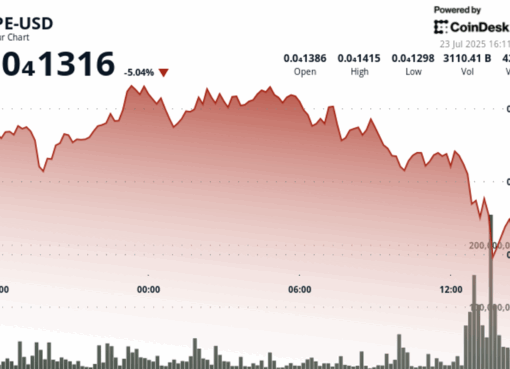Following the recent departure of one, two more attorneys withdrew from representing the US SEC in its lawsuit against Ripple over XRP offerings.
Aug. 24 court filings reveal that attorneys Richard Best and Robert MacDonald Moye requested to withdraw from the SEC vs. Ripple trial. The former had the motion immediately granted due to extended medical leave, while the latter is still waiting for a decision from Judge Analisa Torres.
This filing follows this week’s motion for the dismissal of attorney Pascale Guerrier from the case as well, a request that the judge quickly granted.
The crypto community on Twitter suggests that lawyers are jumping ship in anticipation of the regulator losing the lawsuit.
Still, there is no solid indication that those suggestions have any foundation. John E. Deaton — founder of the crypto-centric legal news outlet Crypto Law — wrote that the change means nothing. He further explained that Guerrier could have been “reassigned or could be leaving the SEC.”
Deaton indicated a shift in attention to the Ripple case after Tenreiro received a promotion and Attorney Bliss left the SEC for BlockFi. Even though Tenreiro was still overseeing the case, he assigned Guerrier to argue the Hinman speech documents’ oral argument.
Deaton suggested that Tenreiro might have anticipated criticism from Judge Netburn and avoided taking responsibility by letting Guerrier handle it. Deaton, present during the court proceedings, mentioned that Guerrier seemed unprepared, even making false statements regarding the SEC’s stance on the Hinman documents.
Following this, Judge Netburn expressed her disapproval of the SEC’s conduct, hinting that the criticism was directed at both Guerrier and Tenreiro. Deaton believes that a responsible leader would have faced the situation directly.
The SEC has filed a lawsuit against Ripple Labs Inc., the digital asset firm behind the cryptocurrency XRP. The lawsuit alleges that Ripple’s sale of XRP constitutes a violation of federal securities laws. The SEC claims that XRP is not a currency but an investment contract that gives its holders a stake in Ripple’s future profits and success.
According to the SEC, Ripple misled investors about the status and utility of XRP and manipulated the market by selectively disclosing information and paying incentives to third parties. The agency argues that XRP should be classified as a security, subject to the regulations and oversight that come with that classification.
On the other hand, Ripple denies these allegations and contends that XRP is not a security but a decentralized cryptocurrency with utility and value beyond Ripple’s control. The company argues that the SEC’s lawsuit is based on a flawed and outdated interpretation of the law and harms the crypto industry’s innovation and development.
The lawsuit has been a protracted and contentious battle between Ripple and the SEC. Ripple’s CEO, Brad Garlinghouse, and co-founder, Chris Larsen, have been named defendants in the lawsuit. The outcome of this lawsuit is significant for Ripple and the broader crypto industry.
If Ripple can successfully defend itself and prove that XRP is not a security, it could affect how other cryptocurrencies are regulated in the United States. On the other hand, if the SEC prevails, it could set a precedent for stricter regulation of digital assets.
The case has garnered attention and speculation from investors and industry observers. Ripple’s prospects and activities in the United States largely depend on the resolution of this lawsuit. While Ripple believes it will ultimately prevail, the company acknowledges that a protracted legal battle could be costly and risky. Therefore, a settlement with the SEC might be the best course of action for Ripple to pursue.




